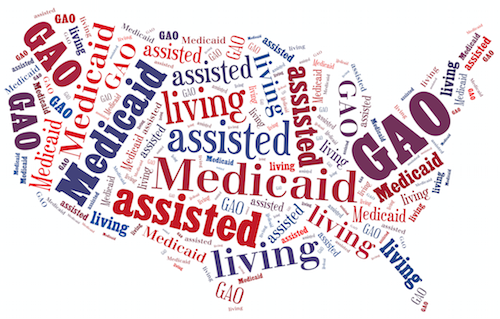
The Department of Health and Human Services expects to issue a policy statement by the end of 2020 that addresses the monitoring and reporting of “critical incidents” — such as abuse, neglect and exploitation — involving Medicaid beneficiaries who live in assisted living communities, the Government Accountability Office said in a report released Thursday.
The impending interpretive guidance was noted in a 40-page report to HHS Sec. Alex Azar that conveyed, among other points, that HHS had not addressed one of three recommendations made in a January 2018 GAO report, “Medicaid Assisted Living Services: Improved Federal Oversight of Beneficiary Health and Welfare is Needed.”
In that report, GAO investigators said that, for various reasons, 26 of the 48 state Medicaid agencies studied could not report the number of critical incidents — such as abuse, neglect or exploitation — that occurred in the assisted living communities located in their states. Additionally, states had varying definitions of what they considered to be critical incidents; all states included physical, emotional and sexual abuse, but seven did not include medication errors, and three did not include unexplained death. Also, although 34 state Medicaid agencies made information on critical incidents available to the public in some way, 14 did not.
Investigators in 2018 had recommended that CMS Administrator Seema Verma:
- Provide guidance and clarify requirements for states regarding their monitoring and reporting of deficiencies in assisted living communities.
- Establish standard Medicaid reporting requirements that all states could use to annually report information on critical incidents. At minimum, reported information should include the type of critical incidents and the type of residential facilities, including assisted living facilities, where the critical incidents occurred, the GAO recommended.
- Ensure that all states submit annual reports for home- and community-based services waivers on time, as required.
It’s the second recommendation that remains unaddressed, the GAO said in 2018, 2019 and in the latest report, in which the agency said that HHS neither agreed nor disagreed with the recommendation.
“To fully implement this recommendation, the subregulatory guidance should establish standard Medicaid reporting requirements for all states to report critical incidents annually,” the GAO said. “We will evaluate this guidance when it is issued to determine whether it fully addresses our recommendation.”
HHS noted its plan for the issuance of the guidance in its fiscal year 2021 budget justification, the GAO said. In that document, HHS said it concurs with all three recommendations from the 2018 GAO report.
Forty-eight percent of assisted living communities are Medicaid-certified, and approximately 16.5% of assisted living residents rely on Medicaid to cover their assisted living services, according to the National Center for Assisted Living.



